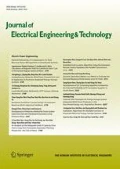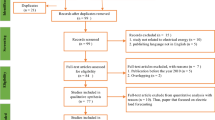Abstract
Day-ahead residential load forecasting is important for power system demand response. Considering the fluctuation of the residential electricity load and the small accumulation of electricity consumption data in some households, the prediction accuracy of the residential electricity consumption load is significantly challenging. In this study, a scenario prediction scheme for residential electricity consumption load using a transferable flow-based generation model was proposed. First, to make full use of the source domain data, different source domain families were selected to form multi-source domain families according to the association index of the source and target domains by introducing grey correlation analysis. Thereafter, the method of model transfer was adopted, and the pretraining model was established using multi-source household electrical load data. The network parameters of part of the step of flow structure were frozen in the pretraining model, the structural parameters of the unfrozen step of flow structure were fine-tuned and trained by household electrical load data in the target domain, and the day-ahead electricity load prediction model under a small sample was constructed. The experimental results show that the algorithm combined with model transfer performs well in solving the residential load-forecasting effect for small samples.













Similar content being viewed by others
References
Tang X, Chen H, Xiang W et al (2022) Short-term load forecasting using channel and temporal attention based temporal convolutional network. Electr Power Syst Res 205:107761–107774
Kwon BS, Park RJ, Song KB (2020) Short-term load forecasting based on deep neural networks using LSTM layer. J. Electr. Eng. Technol 15:1501–1509
Ahmad A, Javaid N, Guizani M, Alrajeh N, Khan ZA (2017) An accurate and fast converging short-term load forecasting model for industrial applications in a smart grid. IEEE Trans Ind Inform 13(5):2587–2596
Hippert HS, Pedreira CE, Souza RC (2001) Neural networks for short-term load forecasting: a review and evaluation. IEEE Trans Power Syst 16(1):44–55
Jufri FH, Oh S, Jung J (2019) Day-ahead system marginal price forecasting using artificial neural network and similar-days information. J Electr Eng Technol 14:561–568
Ruxue L, Shumin L, Miaona Y et al (2021) Load forecasting based on weighted grey relational degree and improved ABC-SVM. J Electr Eng Technol 16:2191–2200
Hong T, Wang P, Willis HL (2011) A Naïve multiple linear regression benchmark for short term load forecasting. In: 2011 IEEE power and energy society general meeting, pp 1–6
Lemos-Vinasco J, Bacher P, Møller JK (2021) Probabilistic load forecasting considering temporal correlation: online models for the prediction of households’ electrical load. Appl Energy 303:117594–117604
Chen Y, Wang Y, Kirschen D, Zhang B (2018) Model-free renewable scenario generation using generative adversarial networks. IEEE Trans Power Syst 33(3):3265–3275
Chen Y, Wang X, Zhang B (2018) An unsupervised deep learning approach for scenario forecasts. In: 2018 power systems computation conference (PSCC), pp 1–7
Ge L, Liao W, Wang S, Bak-Jensen B, Pillai JR (2020) Modeling daily load profiles of distribution network for scenario generation using flow-based generative network. IEEE Access 8:77587–77597
Hyndman RJ, Athanasopoulos G (2014) Forecasting: principles and practice. OTexts
Huang N, Wang W, Cai G (2020) Optimal configuration planning of multi-energy microgrid based on deep joint generation of source-load-temperature scenarios. CSEE J Power Energy Syst
Gu Y, Chen Q, Liu K, Xie L, Kang C (2019) GAN-based model for residential load generation considering typical consumption patterns. In: 2019 IEEE power and energy society innovative smart grid technologies conference (ISGT), pp 1–5
Zhang L, Zhang B (2019) Scenario forecasting of residential load profiles. IEEE J Sel Areas Commun 38(1):84–95
Pan SJ, Yang Q (2009) A survey on transfer learning. IEEE Trans Knowl Data Eng 22(10):1345–1359
Zhang YL, Luo GM (2015) Short term power load prediction with knowledge transfer. Inf Syst 53:161–169
Zeng P, Sheng C, Jin M (2019) A learning framework based on weighted knowledge transfer for holiday load forecasting. J Mod Power Syst Clean Energy 7(2):329–339
Zhou D, Ma S, Hao J et al (2020) An electricity load forecasting model for integrated energy system based on BiGAN and transfer learning. Energy Rep 6:3446–3461
Valenzuela C, Diego SF, Gómez V (2021) Expression transfer using flow-based generative models. In: IEEE/CVF conference on computer vision and pattern recognition workshops (CVPRW), pp 1023–1031
Dumas J, Wehenkel A, Lanaspeze D et al (2022) A deep generative model for probabilistic energy forecasting in power systems: normalizing flows. Appl Energy 305:117871–117892
Kingma DP, Dhariwal P (2018) Glow: generative flow with invertible 1x1 convolutions. Adv Neural Inf Process Syst 10:236–245
P. S. Inc. https://dataport.pecanstreet.org.
Acknowledgements
This work was supported by Natural Science Foundation of Jilin Province (YDZJ202101ZYTS189).
Author information
Authors and Affiliations
Corresponding author
Additional information
Publisher's Note
Springer Nature remains neutral with regard to jurisdictional claims in published maps and institutional affiliations.
Rights and permissions
About this article
Cite this article
Lin, L., Chen, C., Wei, B. et al. Residential Electricity Load Scenario Prediction Based on Transferable Flow Generation Model. J. Electr. Eng. Technol. 18, 99–109 (2023). https://doi.org/10.1007/s42835-022-01172-6
Received:
Revised:
Accepted:
Published:
Issue Date:
DOI: https://doi.org/10.1007/s42835-022-01172-6




